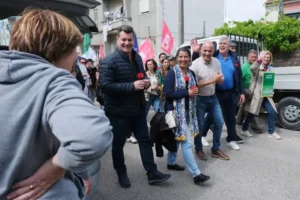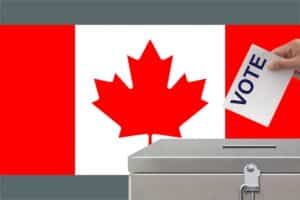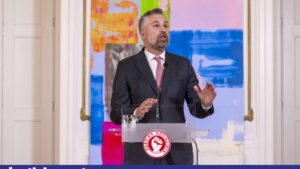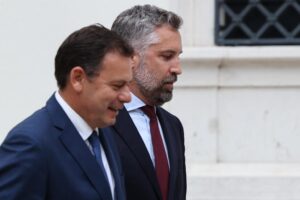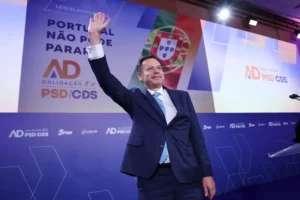Luís Montenegro faces chief adversary Pedro Nuno Santos, three weeks before country goes to polls
Following weeks of fairly lacklustre televised debates between party leaders, the final showdown between Portugal’s main political adversaries comes tomorrow night, after which the ‘election race’ towards Sunday May 18 will begin in earnest – taking the country to the 3rd legislative elections it has had in three years, and hopefully to some form of working majority.
Recent polls put the AD social democrat coalition led by Luís Montenegro slightly ahead, with Montenegro himself being perceived as a better prospect for prime minister than his PS Socialist counterpart Pedro Nuno Santos. But specific questions on how people perceive the current government’s performance after a fraught year in office see the vast majority saying everything has become worse (principally, the cost of housing, the cost of living, criminality, corruption, immigration, the state health service and income tax). The only areas where those questioned appeared to see any improvement under AD, after eight years of Socialism, was in state education, and nature and the environment.
Thus tomorrow’s debate will be the moment when Santos will be hoping to turn the tide in his favour. One positive being that if PS Socialists ‘win’ on May 18 (but do not have a working majority), the chances of them forming a coalition that creates one are higher than with AD: AD’s position has always been that it refuses a coalition with far-right CHEGA, the country’s third largest political force – and the latest poll by ICS/ISCTE for Expresso and SIC suggests social democrat antipathy to an alliance with CHEGA has only grown.
Today, Correio da Manhã’s executive director Paulo João Santos suggests that Pedro Nuno Santos will need to “score points” in tomorrow’s debate “to level the balance” of opinion over the merit of the two political leaders. “It is at these moments that the dynamics of victory are created and consolidated as the elections draw closer”, he writes.
His overview of Montenegro’s ‘head to head’ with CHEGA leader André Ventura (from which the PM was considered to have emerged the ‘stronger figure’) is that AD’s leader “should have more humility, to recognise what has gone badly, what has failed and present different solutions to those that have been applied and didn’t work. This is what electors want to know – how to resolve the problems of the SNS health service, how to guarantee citizens greater security, what strategy to use for immigration and housing. And it will be up to Pedro Nuno Santos to capitalise (or not), bearing in mind that eight years of Socialist governments did not leave anyone missing them in any of the areas mentioned”.
Expectations of “a surprise”, a “galvanizing idea for the country” are very small, admits Paulo João Santos, “but we will see if Luís Montenegro or Pedro Nuno Santos have a rabbit to pull out of a sack”.
If not, more of the same kind of ‘head to head’ as the nation has been subjected to for the last few weeks will simply tire people more than they are already, he concludes.
Lusa adds that the ‘campaign in earnest’ will be hitting the streets of various parts of the country from next Sunday (May 4).
The state news agency sees the televised debates as having “set the agendas of the various parties” in terms of the main themes: housing (or rather the lack of affordable housing), the state health service (namely, its many problems), defence, immigration and taxation.
As Lusa recalls, both main party leaders have their financial affairs under scrutiny by the public prosecutors’ office. Indeed, it was questions over the prime minister’s former company that sparked these elections.
Just last year, the AD coalition led by Luís Montenegro snatched power from PS Socialists by the shortest margin in Portugal’s democracy, just 54,000 votes, managing to amass 80 MPs to the Socialists’ 78. Otherwise parliament is made up by 50 CHEGA MPs, eight representing Iniciativa Liberal, five Bloco de Esquerda, four PCP communists, four LIVRE and one MP representing PAN (People Animals Nature).
Source: Lusa/ Correio da Manhã/ Expresso



